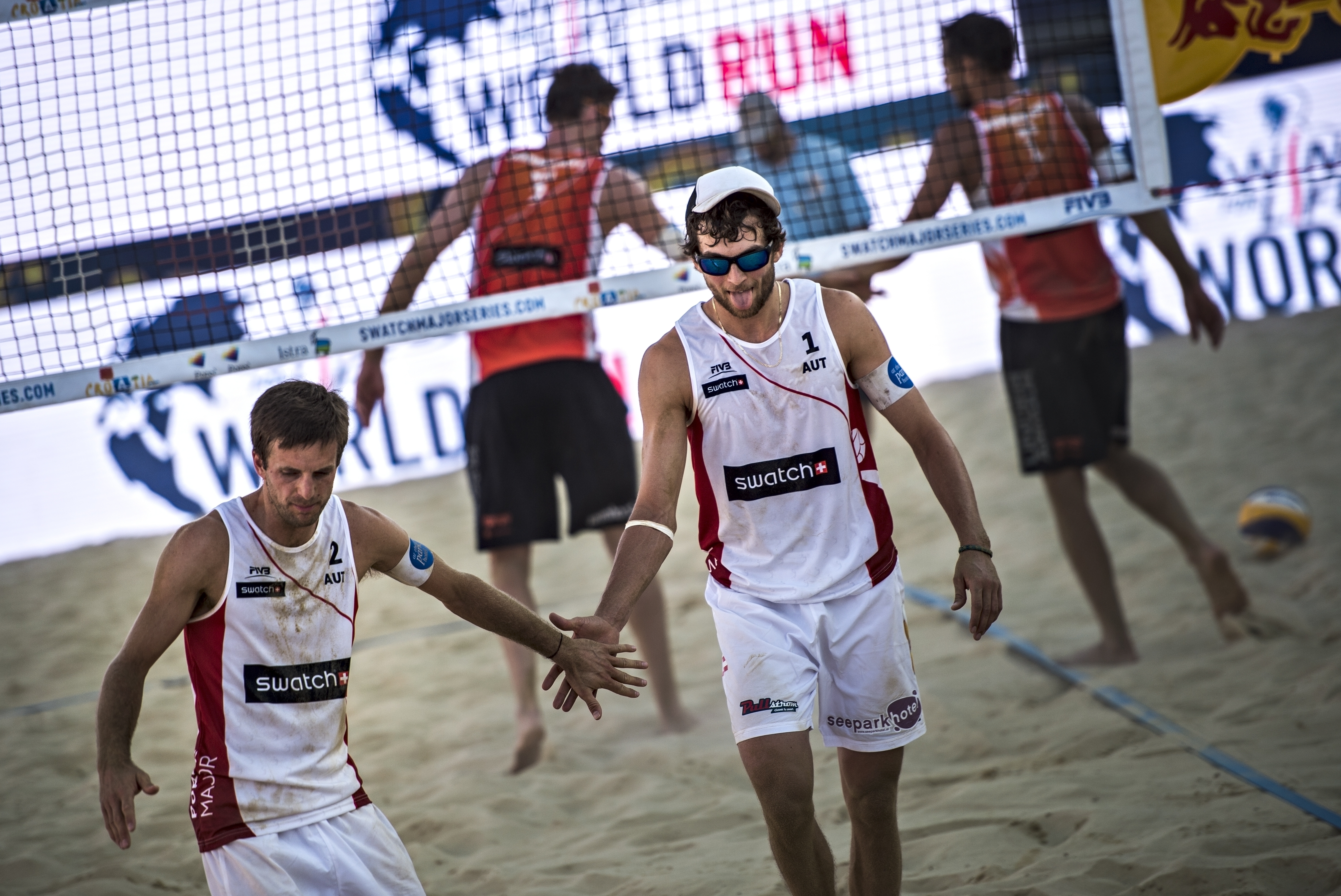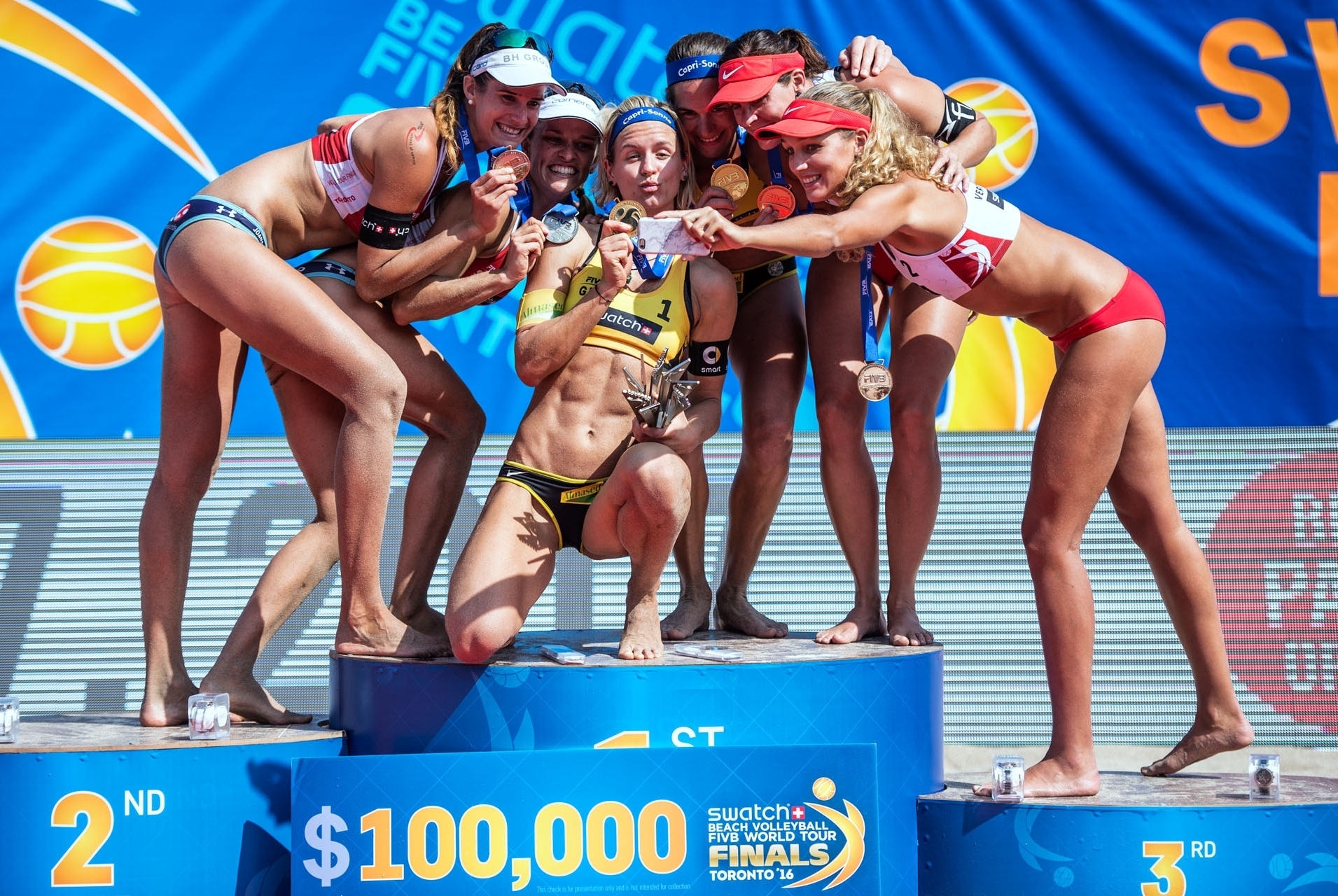2016-09-22 12:35:00 CEST
More than sports: It’s all about finding compromises
Austria and Germany initiate big changes in their national beach volleyball federations
The Olympic Games are done, the Swatch Beach Volleyball FIVB World Tour Finals are done. The beach volleyball season is over and with it a four-year cycle, during which all players, coaches and officials focused totally on the Olympics. And now what?
Some athletes retire like Swiss girl Nadine Zumkehr, 31, who played her last match in the final at Polson Pier, where she and Joana Heidrich won silver. Others end their partnerships and look for new partners like Sarah Pavan and Heather Bansley from Canada or Xandi Huber and Robin Seidl from Austria, who finished in the top 10 at the Olympics. For Huber/Seidl, this rank has been a huge success, but the Austrian Volleyball federation has not been too happy with the Olympic results of its beach volleyball players. Ninth place for Alexander Horst and Clemens Doppler has been a disappointment, although their defeat of the Olympic and Swatch World Tour Finals Champions Alison/Bruno was a great moment for Austria at the Copacabana.
Another important point is that the alpine nation didn’t manage to send one women’s team to the Olympics. That’s also a reason why the national federation of Austria, ÖVV, wants to implement new structures. The key word is: centralization.
Austria is going for medals at World Championships 2017 at home
Until now, most of the beach volleyball players are working like small enterprises. They book their flights and hotels, recruit their coaches and staff, coordinate practice times and venues and organize the financial part on their own — with some sponsors of course. The ÖVV as well the German federation DVV want to move away from this system. “In the future, players and coaches should only focus on playing and coaching,” Peter Kleinmann, president of ÖVV says. “The federation should take care of the financial part and manage all the things around the sport.” This structural transformation should lead to medals at the World Championships 2017 in Vienna and also at the Olympics 2020 in Tokyo. “It has to stop, that beach volleyball players need to fight for their existence,” Kleinmann says. A nice idea, but the federation needs partners to realize this concept.
They already found one in the Austrian armed forces. “Robin Seidl (26) will go to the military in February,” Kleinmann says. In Germany, this cooperation, that enables a regular salary for the players, already exists. But the Germans want more as well. The new ‘German model’ includes three national teams and one team of young talents each gender, practicing together at one federal base, so that they can benefit from each other. Examples of this concept are Italy, Switzerland and the Netherlands, where the centralization has been successfully practiced during the last years.
New sports director beach volleyball will be presented on Friday
Vienna should be the place of centralization in Austria. Kleinmann named six women who should work there for the next years: Steffi Schwaiger, Katharina Schützenhöfer, Lena Plesiutschnig, Nadine and Teresa Strauss as well as Cornelia Rimser. For the men, the ÖVV wants to have a squad of eight to ten players. Until now, the names are: Clemens Doppler, Alexander Horst, Robin Seidl, Martin Ermacora, Moritz Pristauz, Thomas Kunert, Christoph Dressler, Lorenz Petutschnig and Tobias Winter. Who is playing with who has not been decided yet. “We are waiting for the meeting on Friday, I think the federation has some ideas,” Robin told us. His ex-partner Xandi Huber (31) has not been on the list until now.
“He has family and does not want to leave Carinthia,” Kleinmann explains. Coming to Vienna is indispensable to Kleinmann. He makes it clear: “Players who are not working with us in Vienna can go on playing of course, but, then they have to pay everything on their own.” Huber does not understand that. “We are doing a great job in Klagenfurt. The state champion is from Klagenfurt and Robin and I made it on our own way to Rio.” If he is ready to change the center of his life to Vienna depends on the concept, ÖVV is presenting on Friday, he explains. On this day, the federation also wants to introduce the new sports director beach volleyball.
Germany is not there yet. They are still looking for a sports director and national coaches. And they are not as straight in implementing the centralization as Austria wants to be. “Isolated solutions, which are working, can remain,” said DVV vice president beach volleyball Andreas Künkler. But he also said that Olympic Champions Laura Ludwig and Kira Walkenhorst, who also won the Swatch World Tour Finals are an exception to the rule following their success.
Laura and Kira built up their gold team largely independent from the federation in Hamburg, and they would like to go on working like that. “Everyone has their own ideas, how to build a system or what quality means to them,” head coach Jürgen Wagner says. He also led Julius Brink and Jonas Reckermann four years ago as a small business to gold. What will be crucial in the end is the question to what extent will beach volleyball, which has been an individual sport for decades, adjust itself to the structures of an association?

